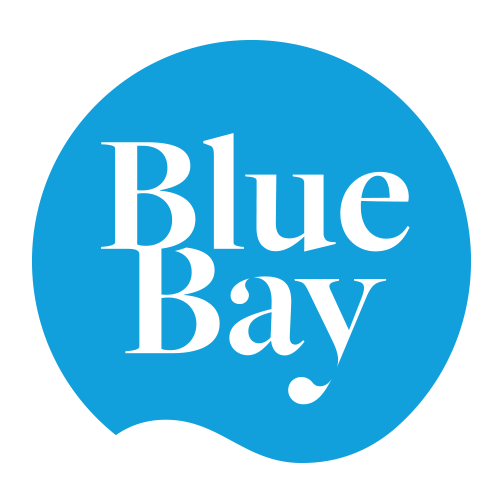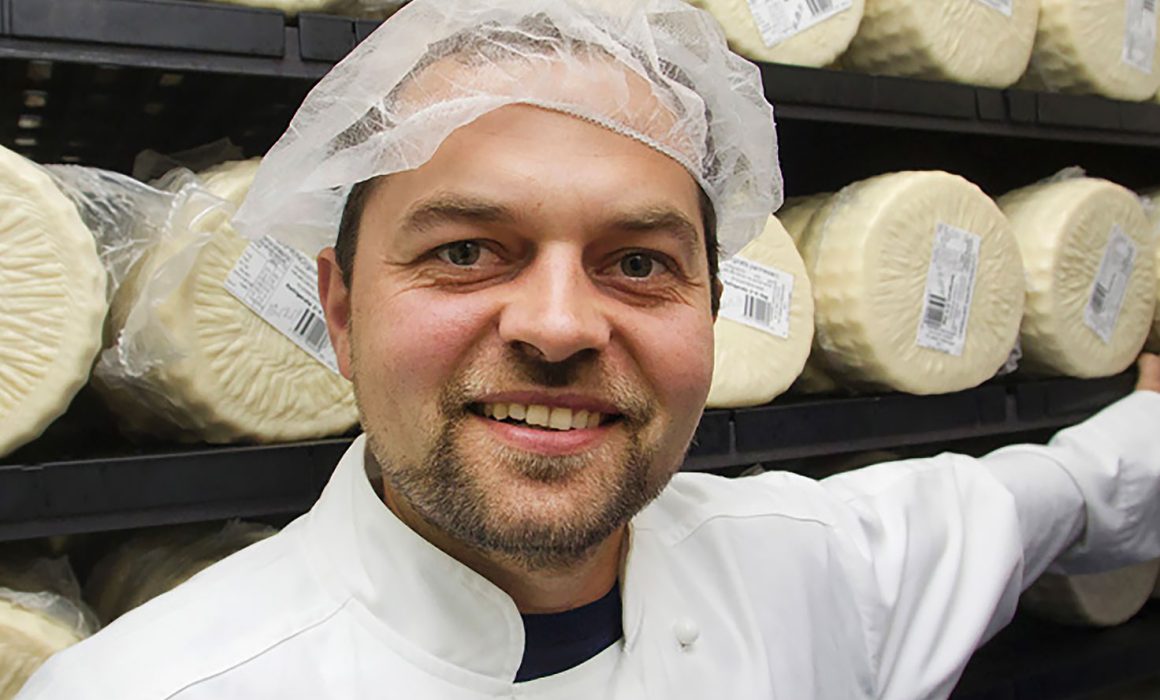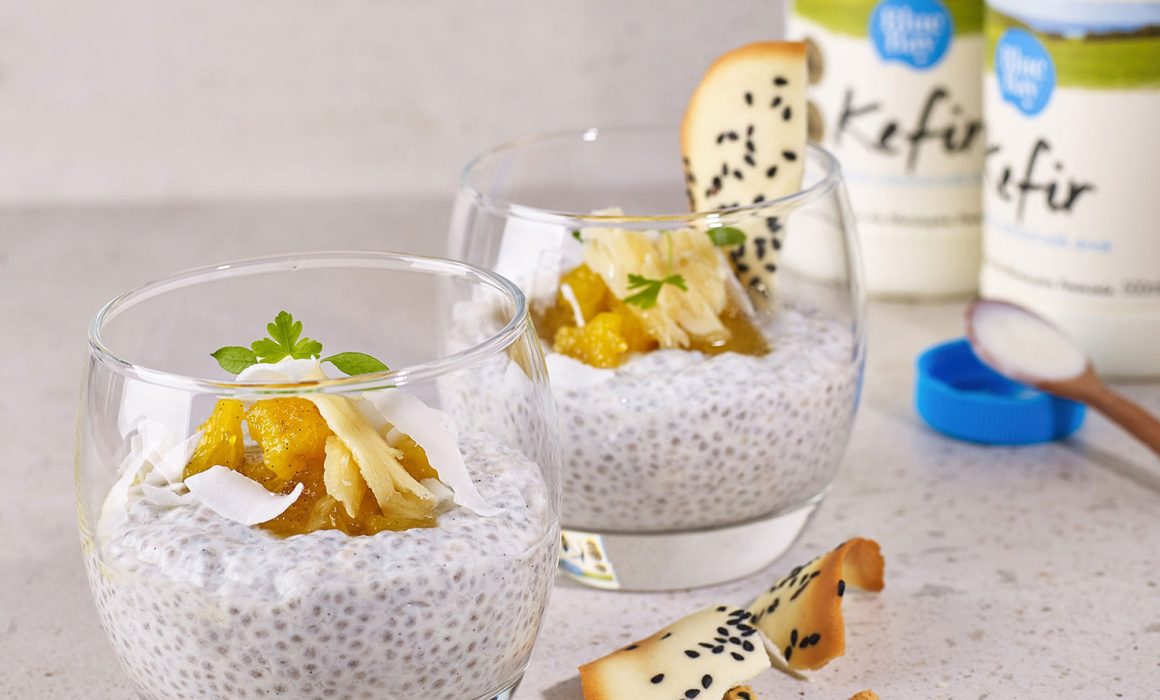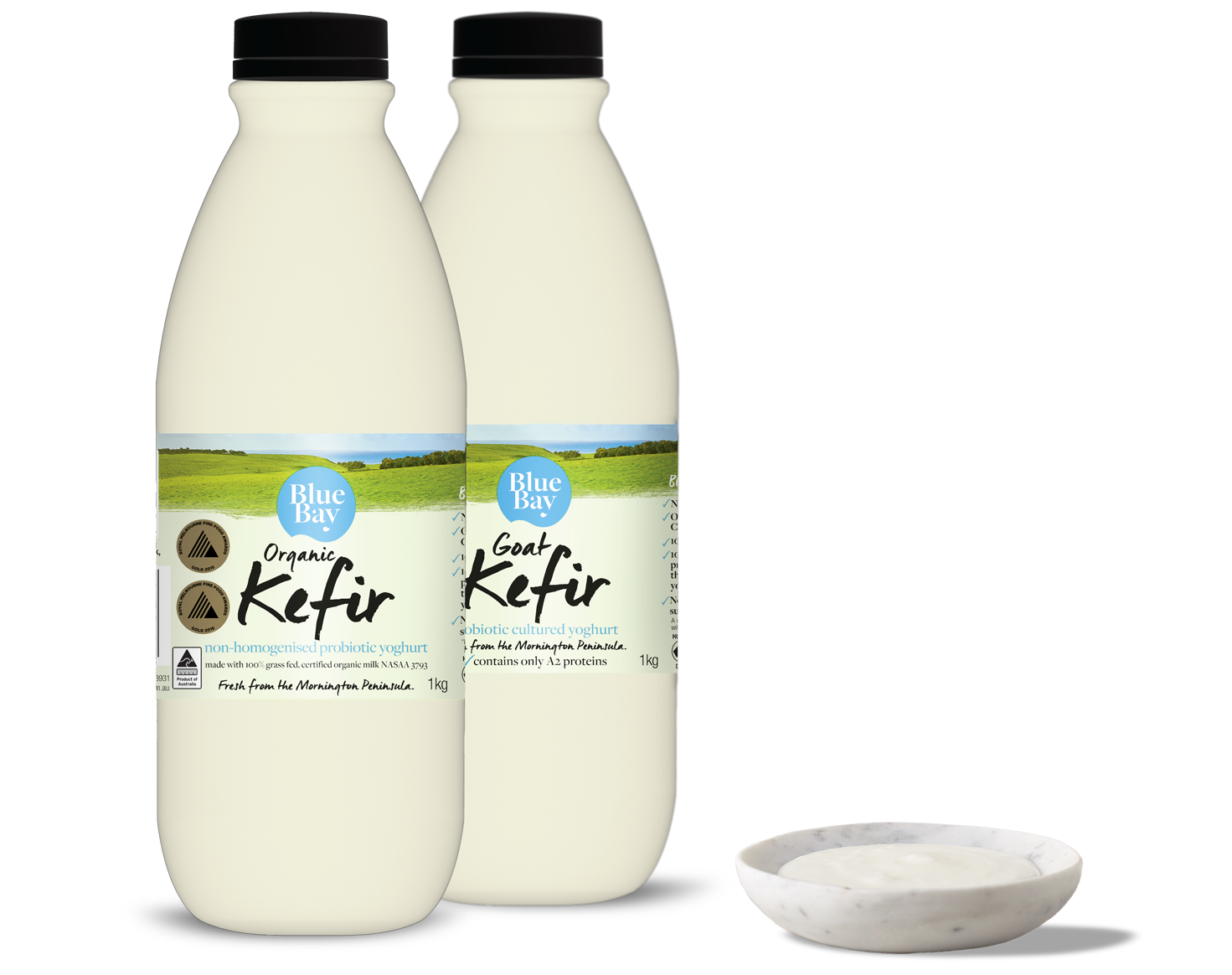Artisan Cheesemaker Andre Kogurt
Melbourne food writer Richard Cornish recently caught up with artisan cheesemaker Andre Kogurt of Mornington, Victoria’s Blue Bay Cheese company; an interview that was long overdue. But learning to be patient in all things dairy it seems, is par for the course.
Cheesemaker Andre Kogut is a patient man. He spends a lot of time waiting. He waits hours for his milk to turn to curds. He waits weeks as the curds set in their hoops. He then waits years for his cheddar to slowly mature. ‘Good things can’t be rushed,’ says Andre with a warm smile. Born in The Ukraine countryside he learned to ferment milk into kefir (traditionally fermented, non-homogenised probiotic yoghurt product) and soft cheeses at his grandmother’s side. Fifteen years ago he started producing dairy products under the Blue Bay label making products familiar to him such as kefir. ‘Fermented products are now so popular but our family have been making them since before we can remember,’ he says. ‘We’ve always known the health benefits of live probiotic cultures. Not that my grandmother would use those words,’ he says with a laugh.
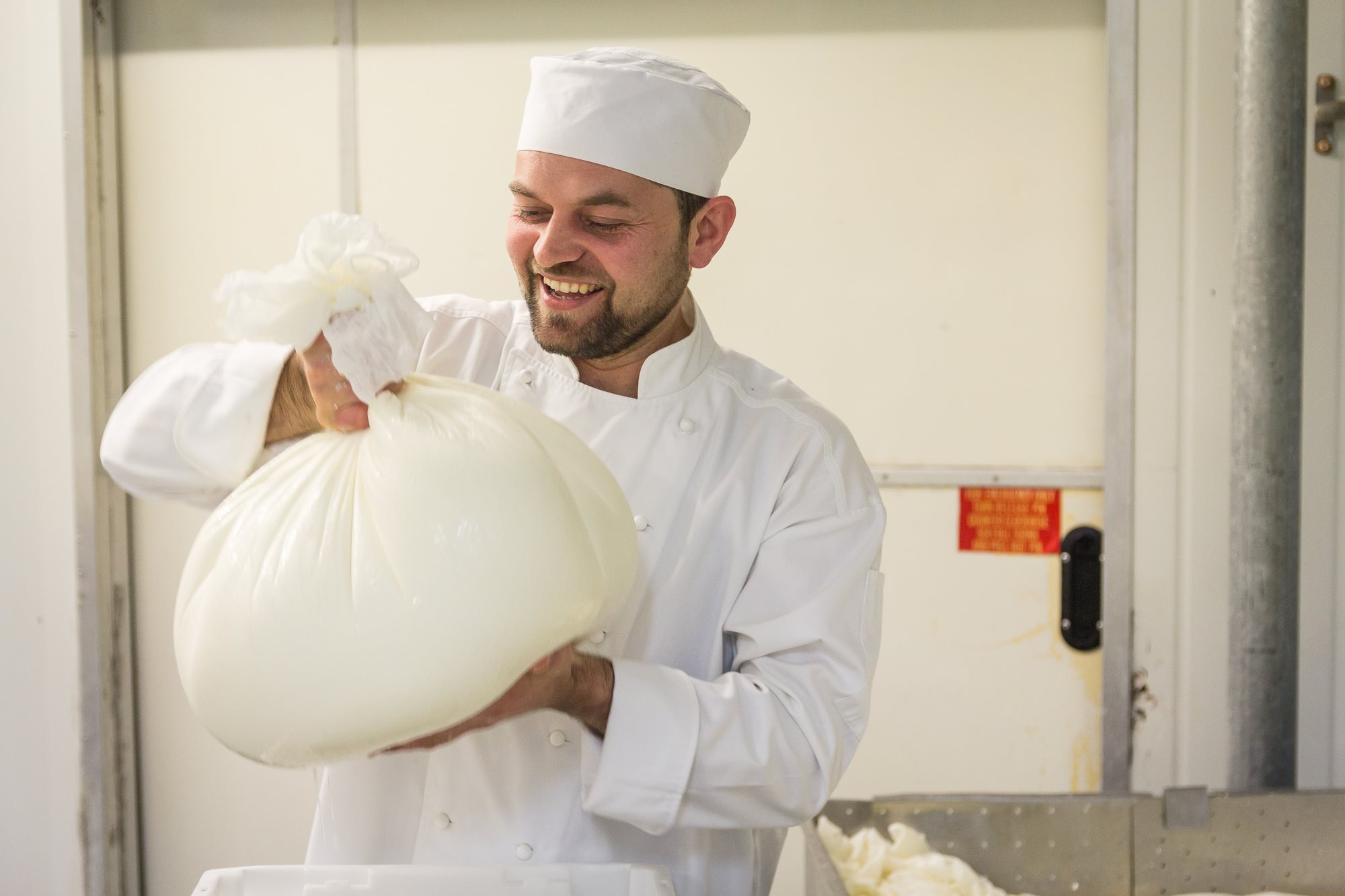
artisan cheesemaker Andre Kogurt of Mornington, Victoria’s Blue Bay Cheese
Andre is also a perfectionist in the best sense. He sources his milk from a single herd of dairy cows grazing in the green rolling hills of Gippsland. The farmer uses organic practices such as eschewing chemical fertilisers and pesticides, instead employing natural weed and insect control and spreading compost and manure, alternatives to super phosphate and ammonia nitrate on the pasture. The farmers are also well known for their humane animal husbandry such as not separating the calves from their mothers and not sending poddy calves to the abattoir. Andre appreciates the quality of the milk and pays the farmers properly.
When the milk arrives at his small factory, hidden in the back blocks of the small industrial park in the seaside town of Mornington on the Mornington Peninsula, he is there waiting. Like all cheesemakers he takes a sample of the milk testing it for fat, protein and other technical parameters. Andre also does something different. He takes a glass of the milk and smells and tastes it like a sommelier would wine. ‘Every season, every day the milk can be different,’ says Andre. ‘Some milk is better for cheese than for kefir.’
Andre agreed to take the excess seasonal milk from the farm. With this he makes great semi hard cooked-curd gouda style cheese and a rich creamy cheddar. The gouda has all the hallmarks of Dutch gouda with its firm pliable texture and lovely nutty caramel flavours. Aged for 6 months this is a cheese perfect for melting or adorning a cheese platter. Andre also makes a cheddar that is rich and creamy. Using vegetarian rennet and traditional Cheddar cultures he sets the milk and cuts the curds. The curds are milled and salted then hooped into a 6kg wheel. They are partially drained and then left to set for several weeks with constant turning before being sent to the cellar, where maturing for 2-3 years, they develop those rich floral and ‘cheesy’ aromas one expects in a cheddar. The texture is smooth and velvety, a more refined version of the Mersey Valley Cheddar style of cheese.
Andre was selling extensively to the big supermarkets but they were not playing fair. Instead he chooses to work with good food stores and selling direct to the public through his factory in Mornington and via farmers markets in and around Melbourne. ‘I love the contact with the general public,’ says Andre. ‘They give me so much feedback. They tell me what they like and don’t like about a product and we can make changes to adapt to what they want. It’s the same relationship with the farmer. I have constant contact with my primary producer and our end customers. It is complex. But it is so rewarding’
